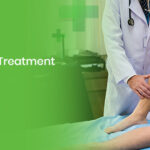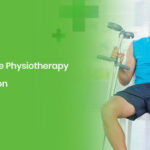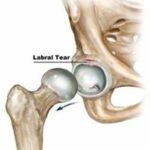Restless Leg Syndrome is a sensory neurological disorder that is characterized by unpleasant sensations in the legs and the compelling need to move the legs. The most common sensations have been described as cramping, soreness, creeping, or crawling sensation in the calves or feet which can vary in severity from mild discomfort to severe pain. Restless Leg Syndrome is usually experienced when trying to sleep or when seated.
Causes of Restless Legs Syndrome
The exact cause of Restless Leg Syndrome is unknown but it has been linked to:
- Iron deficiency and poor iron transport around the body;
- Family genetics – 50% of RLS is linked to genetic chromosome 12 or 14, depending on the family;
- chronic diseases such as kidney failure, diabetes, Parkinson’s disease, and peripheral neuropathies;
- pregnant women in their last trimester;
- People taking certain medications – such as anti-nausea, anti-seizure, and antipsychotic drugs.
SYMPTOMS:
The most distinctive symptoms of Restless Leg Syndrome are cramping, soreness, creeping or crawling in the lower legs when lying down and trying to relax. As a result, most people with RLS have difficulty falling asleep and staying asleep. Over a period of time this may cause daytime exhaustion and fatigue.
Treatment of Restless Legs Syndrome
- Medication:
- A number of medications may be tried to treat the disorder, including central nervous system depressants, benzodiazepines, opioids, and anticonvulsants. Medications that affect dopamine transmission in the central nervous system have been shown to help Restless Leg Syndrome. Consult a physician/neurologist for proper advice.
- Manage Iron, foliate, or magnesium deficiencies. Consult a physician for proper advice.
- Therapy – Exercise- Movement can bring temporary relief from the symptoms of Restless Leg Syndrome; these patients feel better after a small walk post-dinner and can sleep properly to some extent. Alternatively, performing a program of regular moderate exercise may help reduce symptoms and helps to sleep better. However, excessive exercise has been reported by some patients to aggravate RLS symptoms. Consult a physiotherapist to design a small regime that can be done prior to sleep.
- Massage, Heat, and Ice:
- There is no such work published to support as if massage relieves RLS symptoms but has been reported by few patients to be helpful.
- Using a heat pack, having a warm bath, or placing an ice pack on your symptomatic areas for 10-15mins before bed may also help relieve symptoms.
Lifestyle Modification:
For patients with no associated medical condition, certain lifestyle changes and activities may reduce or eliminate symptoms. These include:
- Reduce the use of caffeine,
- Reduce the use of alcohol,
- Avoid/stop the use of tobacco,
- Stress management through meditation/pranayama/ deep breathing exercises.





